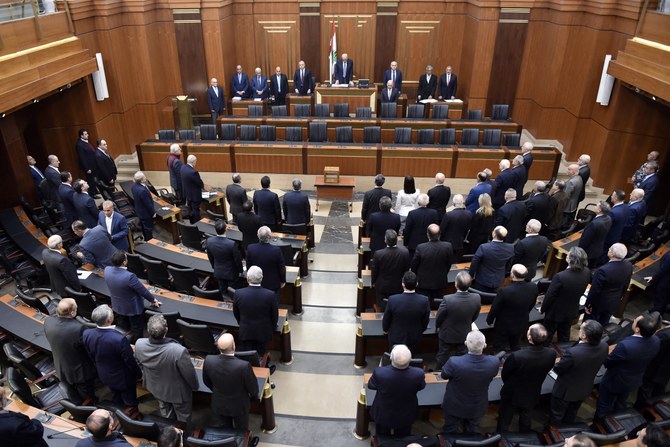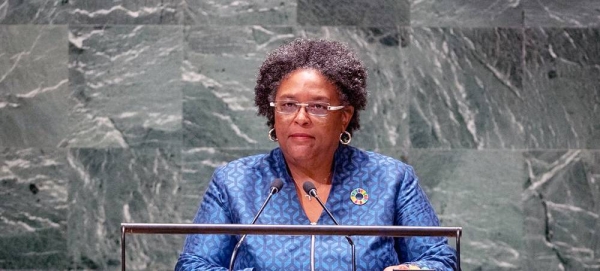
It was only a matter of time before Israel’s coalition government would face a major crisis and lose its majority in the Knesset, the Israeli parliament.
It might be regarded as almost a miracle that it took nearly 10 months for this to happen but it did and, ironically, it was the government whip, Iidt Silman, the person tasked with keeping this improbable collection of eight parties together, who decided to quit, citing irreconcilable ideological differences.
Will this prove to be the moment at which the wobbly coalition pressed the self-destruct button? For now, the government enjoys the support of exactly half of the 120 members of the Knesset — but even this is questionable. There is not a single domestic or international issue on which all the members of this coalition, which comprises almost the entire range of Israeli political persuasions, genuinely agree. Well, with one exception: Doing away with the divisive and corrupt time in office of former Prime Minister Benjamin Netanyahu.
This so-called “change” government raised the banner for bringing the 12-year Netanyahu era to an end. “Anyone but Bibi” was the slogan under which this narrow coalition came together and it originally enjoyed a majority of just one. It was, and still is, a noble objective to want to prevent a defendant in three cases of corruption from running the country while playing to the personality cult that surrounds him.
Yet, as it stands, there is a considerable number of right-wing members of the coalition who share more views with members of the opposition than they do with their colleagues in government, an anomaly that was bound to result in tensions and crisis within the latter.
Whatever one’s political persuasions, in the numbers game of Israeli party politics the thing that is preventing an outright right-wing government is that Netanyahu refuses to leave politics and is officially leader of the opposition. From this position, he and his henchmen are able to target right-wing coalition members they see as weak links, and use threats and abusive language to pressure them to quit the political alliance.
The justification for this thuggish and shameless behavior is that by being part of the coalition these members of Knesset have betrayed their voters, not to mention their creed, above all by legitimizing the sharing of power with an Arab-Israeli party, Ra’am, led by Mansour Abbas.
This is actually one of the biggest achievements of this government: It is the first time in history that such a party has been represented in Israel’s government. For Netanyahu and his people, however, racism and populism always come naturally and reign supreme. But hypocrisy comes a close third, because previously, in an attempt to remain in office and influence his corruption trial in his favor, Netanyahu himself declared that he was ready to sit alongside Ra’am in government.
It is a government that has done very little to improve relations with the Palestinians and it continues to expand settlements.
Yossi Mekelberg
Truth be told, one could level against each and every member of the current coalition the accusation that they have betrayed their principles by joining it. Alternatively, one can make the exact opposite argument by cutting them some slack, giving them credit for taking the unusual decision to share power with their political opponents, and acknowledging that they are making great sacrifices for the sake of the country.
Such sacrifices might backfire at the next general election should their supporters see fit to punish them for breaking campaign promises rather than rewarding them for restoring some sanity to Israeli politics and removing a corrupt and opportunistic prime minister.
Sadly, this is a government that can survive only if it does very little to alter the status quo, merely makes incremental changes and avoids any obvious landmines. Thus far it has been more about a change of style than of substance, which has allowed it to survive against the odds — and as a matter of fact, it is the more left and liberal leaning elements within it that have made the major concessions for the sake of keeping the coalition intact.
The government of Naftali Bennett, and I am far from being one of its fans, has at least managed to shake up Israeli politics, including the passing of a budget bill for the first time in years and the reduction of some of the inflammatory rhetoric in relations with the world and also at home.
However, it is a government that has done very little to improve relations with the Palestinians and it continues to expand settlements, legalize outposts and do nothing to stop settlers’ violence. Not much has been done to change the status quo on relations between the state and the religious establishment, and what little has been done is about to be reversed to save the coalition to face another day.
At one of the most crucial junctures in Israel’s history, when it has established new and extremely important relations with other countries in the region, beginning with the Abraham Accords and expanding and deepening the trend in their aftermath; when the revival of the nuclear deal with Iran is a real possibility, with wider implications for its own security and that of the wider region; when Russia’s invasion of Ukraine has created uncertainty regarding Israel’s room to operate in Syria; and while Israel’s recovery from the COVID-19 pandemic is patchy, the country needs a stable government that is capable of making important decisions — not one that is preoccupied with its own survival.
Worse, there is a profound danger that as a consequence of the protracted political instability, the government and its prime minister, Bennett, will feel compelled to pursue more hawkish, aggressive and populist policies, under pressure from the opposition, on the way to its next test at the ballot box.
Silman, a member of Prime Minister Bennett’s shrinking party, blamed her desertion on the health minister, who had reiterated to hospital managers a ruling by the High Court of Justice allowing unleavened bread, an item prohibited to observant Jews during the festival of Passover, in hospitals. After all, not all patients are Jewish or observant Jews.
It must be a historic precedent for the survival of a government to be severely threatened by a particular food item being allowed into a public building. The story of Exodus that is told during Passover has an all-new political meaning in Israel this year: It begs the question of whether Silman’s act has parted the sea for a mass exodus from Bennett’s government, leading to the less-than-promised land of another general election.
Yossi Mekelberg is professor of international relations and an associate fellow of the MENA Program at Chatham House. He is a regular contributor to the international written and electronic media. Twitter: @YMekelberg












